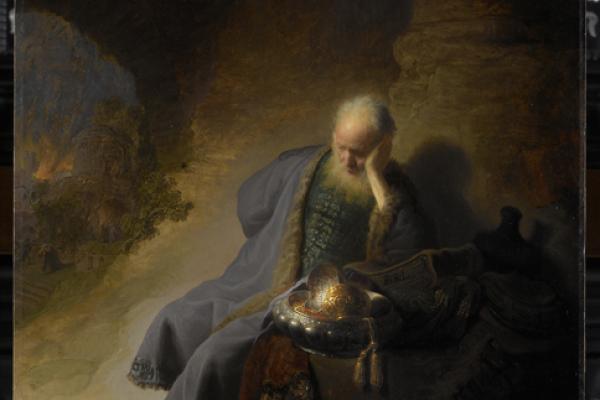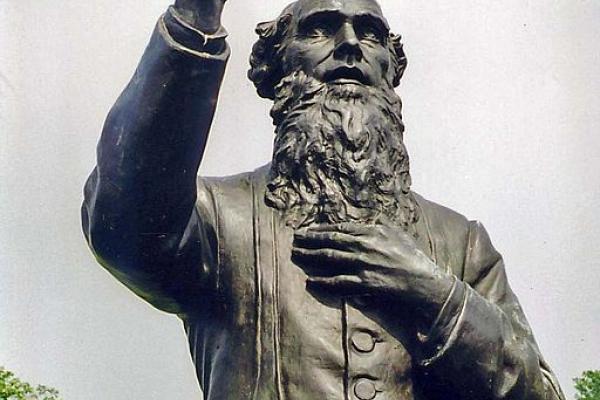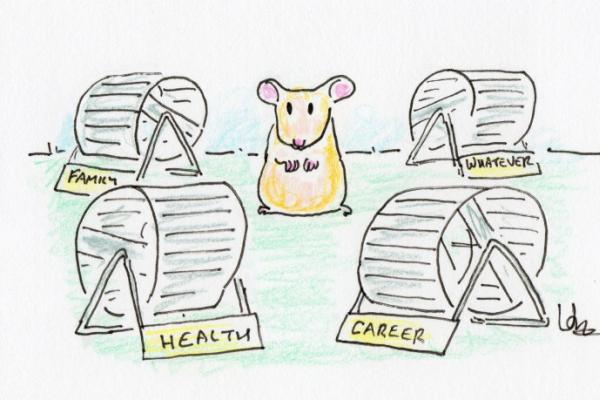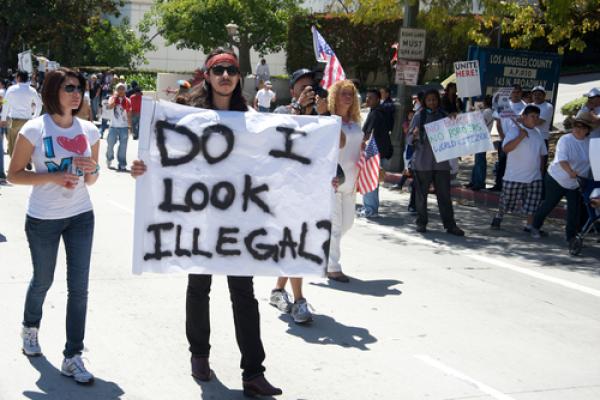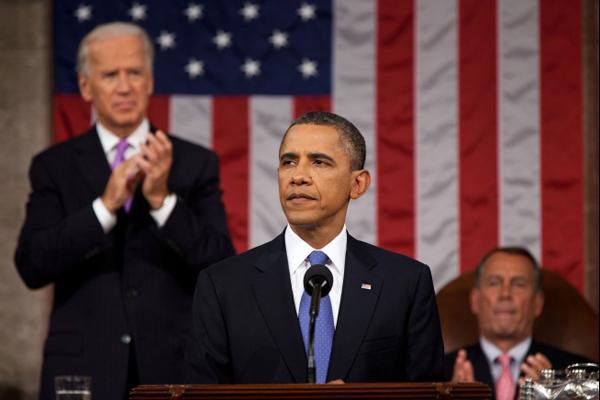1) You Love To Argue, Fight, And Attack
There’s nothing quite like flooding people’s Facebook feeds with posts about the sins of gay marriage, abortion, and the Democratic Party or the volleyed claims of bigotry, hypocrisy, and self-interest.
American Christians seemingly love to argue with people and engage themselves in various culture wars. Whether it’s about the existence of global warming, prayer in schools, evolution, gun control, or homosexuality, you love to let people know that you’re RIGHT and they’re WRONG. Oh yeah, and if you don’t agree with me —You’re going to hell! Literally.
Your main forms of communication include boycotting, accusing, yelling, screaming, pointing, spewing, slandering, shaming, shaking your fists, and waving protest signs. In fact, you’ll probably write a venomous response to this piece in the comments section below.
The soundtrack for a lot of Orthodox Jews this Fourth of July will be the mute button.
As music gallantly streams at barbecues and fireworks displays across the nation, many Orthodox Jews will silence their TVs and avoid live music performances, such as the annual Boston Pops concert on the Esplanade Hatch Shell.
As it does every three years or so, Independence Day falls during a three-week Jewish mourning period, circumscribed by two fast days: the 17th of Tammuz, which falls on June 25 and Tisha B’Av, which falls on July 16.
During the July 1-3, 1863 Battle of Gettysburg, there were Christians and Jews on both sides of the conflict who knew the answer to the question “Whose side is God on?”
Or at least they thought they did.
In 1861, Confederate President Jefferson Davis declared: “Our cause is just and holy,” and the South self-assuredly adopted as its motto Deo vindice (“God will vindicate us”). In the same year, Julia Ward Howe composed the “Battle Hymn of the Republic” with the triumphant words: “He hath loosed the fateful lightning of His terrible swift sword. … I have seen Him in the watch-fires of a hundred circling camps. … Glory, glory Hallelujah, His truth is marching on.”
"American Way of Birth, Costliest in the World"
That's the headline of an article by Elisabeth Rosenthal in yesterday's New York Times. The article includes a chart comparing childbirth costs in seven countries. In the United States, the average amount paid for a conventional delivery in 2012 was $9,775; for a Caesarean section, it was $15,041. Those are the highest prices for childbirth anywhere in the world.
To get an idea of just how high, I made a chart using the figures in the NYT chart. Childbirth costs in the other six countries range from 21 percent to 43 percent of U.S. costs even though American women typically spend far less time in hospital.
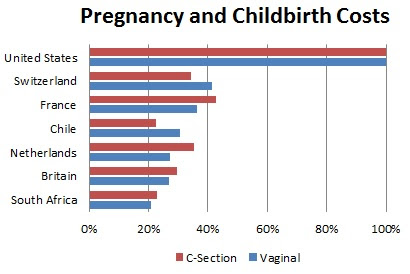
South Africa is so dangerous for childbirth that its graph line would not fit on this blog page. For every 1,000 births, there are 56 infant deaths. For every 100,000 births, there are 400 maternal deaths. [Chart by L. Neff; data from WHO]
I often think that anxiety probably has some helpful prehistoric function, like sensing that a large, hungry carnivore is on the prowl and being the one to let the rest of the group know.
But in the absence of large, hungry carnivores (or other clearly perilous situations) anxiety sometimes feels as useful as the appendix, though it flares up even more often, and can’t be easily removed.
For me, anxiety can run in circles, like a sad, neurotic dog in a too-small pen, or a hamster on a little exercise wheel. And there are different paces–different circles, different wheels–that my anxiety puts me through. Because my dad is awesome, he illustrated it for me thus.
Editor's Note: In April, Associated Press representatives said they would no longer recommend the term "illegal immigrant" in the influential AP Style Guide used by many in print media. However, the term is still used by many media outlets and in common parlance. Our hope is that more will follow the AP's lead and rethink its usage.
As the Senate recently passed long awaited immigration overhaul and the bill now heads to the House, the long-standing national discourse on the issue of immigration will likely heat up again. As we participate in these discussions, my hope is that we, especially as Christians tasked with peacemaking and reconciling, will find ways to build bridges instead of erecting walls. As a first step in this bridge building, I pray that once and for all, we will stop using the term “illegal immigrant.”
Here's why:
1. The term “illegal immigrant” is a misleading and dishonest term, which violates the 9th commandment.
The term “illegal immigrant” lends one to believe that an individual is currently doing something illegal, or that their presence in our country is an ongoing, illegal act. In regards to undocumented workers, this is simply not the case. The crime that undocumented workers commit is a violation of “8 U.S.C. § 1325: Entry of Alien at improper time or place,” a federal misdemeanor. Their crime is crossing the border at the improper time and place; however, they are not currently doing anything that is illegal.
Therefore, using this term that has a less-than-honest connotation, is a violation of the commandment to not “bear false witness against our neighbors.”
The brouhaha surrounding Paula Deen, the Food Network star accused of tolerating a racist atmosphere in the kitchen of one of her restaurants, has sent my scapegoat antennae vibrating. Folks are lining up on opposite sides of the issue, to either defend or condemn this Queen of a Southern cooking financial empire. Dropped by the Food Network, Smithfield Foods, and now Walmart, and with a Facebook page populated by supporters, Paula Deen’s accusers and defenders are facing off like battalions on a battlefield. Extreme polarization like this is a symptom that scapegoating is underway, so I suggest everyone take a deep breath and back away from the deep fat fryer while I offer a few scapegoating observations.
The Verdict is Already In
Polarization is not about a search for truth. Polarization indicates that each side believes it is in possession of the truth and is running on overdrive, panting with the effort of making their accusation stick. “Paula Deen is a racist!” shout her accusers. “Why do you hate Southerners?” counter her defenders. No matter which side you are on, you are steadfastly, undeniably certain that you are in the possession of the truth and on the side of good.
Fundraising for the flagship anti-poverty program of the U.S. Catholic bishops is slowly recovering after being battered by the recession and sharp attacks on its mission.
Officials at the Catholic Campaign for Human Development said that when 2012 collections are tallied after June 30, the program will match or slightly exceed last year’s mark of about $9.5 million. While that is still significantly down from the $12 million that the nationwide campaign was netting a few years ago, the upward trend is reassuring.
“We are pretty optimistic,” said Ralph McCloud, director of the CCHD. McCloud said he was still cautious, given the uncertain nature of the economy, but added that “if things keep going the way they have been, we could see a bit of an upswing.”
The Obama administration on Friday issued final rules for religious groups for its controversial contraception mandate, maintaining its position on who qualifies for religious exemption and allowing no carve-outs for private business owners.
More than 60 lawsuits have been filed over the mandate, a part of President Obama’s Affordable Care Act that requires most employers to provide contraception at no cost to employees.
Just as when the draft rules were first unveiled in February, conservatives denounced them as an unconstitutional violation of religious freedom that forces religious organizations and the religious owners of private businesses to offer services they find morally abhorrent.

